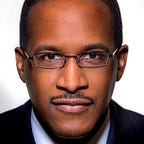Wake Up from DeSantis’s School Daze
Have you heard of Freytag’s Pyramid? I recently learned about it sitting in on a class my daughter is taking at Ben Franklin High School in New Orleans. Franklin is one of the top schools in the state, and one of the top charter schools in the nation. Now her in junior year, she has really thrived there academically, already taking several AP classes with scores that will qualify for college credit.
But back to Gustav Freytag, a German playwright who developed a way to conceptualize the dramatic structure of a story. His five-part structure, also called Freytag’s triangle, is commonly taught in classes and writing workshops. It was being taught in my daughter’s class as well, but it wasn’t in theater or creative writing.
It was the African American studies research-intensive class.
At Franklin, each student is required to take one research intensive class after the ninth grade. The website indicates “(R)esearch across all disciplines is highly beneficial for our accelerated student learning experience. Formerly limited to the Sciences, students can now choose from across the disciplines.” Sixteen courses are offered for students to choose from, including Art History, Asian American Studies, History of American Music, Middle Eastern Studies, US Government, Principles of Engineering, and Women’s Studies.
I was in a class with about twenty Black students who elected to be there, in a class that “will include an annotated works cited, literature review, research proposal, final paper and a culminating public presentation.” Clearly this class is rigorous, with the development of research skills having an educational value. So class began with Freytag’s Pyramid to discuss a movie.
Spike Lee’s 1988 film, “School Daze.”
I was invited to sit in as a former HBCU president and expert on Black fraternities and sororities, the two central storylines for a movie which explores many aspects Black life and culture. In 75 minutes, we were able to discuss colorism, divestment, hazing, philanthropy, Black hair, manhood and masculinity. The students were excited to share their take aways as well as their questions. The teacher provided context while creating a supportive environment for intellectual collisions.
This wasn’t ideological indoctrination; it was engaged exploration.
This could easily be an advanced placement (AP) course for high school students. And yet in Florida, a course like this with the kind of engagement I experienced would be illegal. Florida is using a narrow idea of teaching, the old “sage on the stage” model where a teacher gives students information for them to memorize. But that’s not education.
Education happened in that classroom, discussing ideas, researching on their own their origins, offering their thoughts to be examined by their peers. And because this is a research course the students will engage independently with a topic of their choosing.
Furthermore, shouldn’t there be a range of course options that reflect the diversity of students’ experiences, who come from diverse taxpaying households that fund schools? AP courses are electives; every student in Florida would not be required to take the AP African American studies class. The course my daughter is taking at Franklin represents a range of options, sixteen to be exact from which students must choose just one. At a school where 65% of the students are people of color, this is the right thing to do.
In banning the AP African American studies course, Florida Governor Ron DeSantis has implemented an educational version of taxation without representation. Better yet, this is simply a power move to fight the changing demographics of a diversifying nation through educational apartheid.
In the class, the students almost unanimously hated the end of the movie School Daze, as all the characters are summoned to the campus quad early in the morning, still in pajamas, while the lead character Dap screams repeatedly, “Wake Up!” In a state where the Governor passes a “Stop WOKE” Act, Spike Lee’s message in 1988 still rings true.
People of good will from different backgrounds must put aside differences and fight together to oppose the banning of this course. Refusing to do so only opens the door for similar bans in the future, in other states, and the only narrow ideas offered in schools will reflect a minority of students (and taxpayers). Do not let this go unchallenged.
Please. Wake up.
